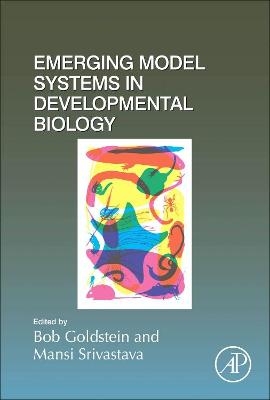
Emerging Model Systems in Developmental Biology
Academic Press Inc (Verlag)
978-0-12-820154-1 (ISBN)
Bob Goldstein is the James L. Peacock III Distinguished Professor at the University of North Carolina at Chapel Hill. His laboratory uses C. elegans as a model for discovering fundamental mechanisms in cell and developmental biology, and he has developed tardigrades as emerging models for studying the evolution of development and how biological materials can survive extreme conditions. Mansi Srivastava is the John L. Loeb Associate Professor of the Natural Sciences in the Department of Organismic and Evolutionary Biology and a Curator of Invertebrate Zoology in the Museum of Comparative Zoology at Harvard University. She developed the three-banded panther worm as a new research organism, which her laboratory uses to study the evolution of development, regeneration, and stem cells.
1. The liverwort Marchantia polymorpha, a model for all ages
John L. Bowman
2. The wild grass Brachypodium distachyon as a developmental model system
Michael T. Raissig and Daniel P. Woods
3. The history of Salpingoeca rosetta as a model for reconstructinganimal origins
David S. Booth and Nicole King
4. Emerging models: The “development of the ctenophore Mnemiopsis leidyi and the cnidarian Nematostella vectensis as useful experimental models
Mark Q. Martindale
5. Past, present and future of Clytia hemisphaerica as a laboratory jellyfish
Evelyn Houliston, Lucas Leclère, Catriona Munro, Richard R. Copley, and Tsuyoshi Momose
6. Studying development, regeneration, stem cells, and more in the acoel Hofstenia miamia
Mansi Srivastava
7. Tardigrades and their emergence as model organisms
Bob Goldstein
8. The crustacean model Parhyale hawaiensis
Mathilde Paris, Carsten Wolff, Nipam H. Patel, and Michalis Averof
9. My road to the ants: A model clade for eco-evo-devo
Ehab Abouheif
10. Cricket: The third domesticated insect
Taro Mito, Yoshiyasu Ishimaru, Takahito Watanabe, Taro Nakamura, Guillem Ylla, Sumihare Noji, and Cassandra G. Extavour
11. Schmidtea happens: Re-establishing the planarian as a model for studying the mechanisms of regeneration
Phillip A. Newmark and Alejandro Sánchez Alvarado
12. The good, the bad, and the ugly: From planarians to parasites
Tania Rozario, James J. Collins III, and Phillip A. Newmark
13. Slipper snail tales: How Crepidula fornicata and Crepidula atrasolea became model molluscs
Deirdre C. Lyons and Jonathan Q. Henry
14. Sifting through the mud: A tale of building the annelid Capitella teleta for EvoDevo studies
Elaine C. Seaver
15. Glossiphoniid leeches as a touchstone for studies of development in clitellate annelids
David A. Weisblat
16. Journey beyond the embryo: The beauty of Pristina and naidine annelids for studying regeneration and agametic reproduction
Alexandra E. Bely
17. Streblospio benedicti: A genetic model for understanding the evolution of development and life-history
Christina Zakas
18. The arm of the starfish: The far-reaching applications of Patiria miniata as a model system in evolutionary, developmental, and regenerative biology
Anne Meyer and Veronica Hinman
19. Saccoglossus kowalevskii: Evo-devo insights from the mud
Jessica Gray, Jens H. Fritzenwanker, Doreen D. Cunningham, and Christopher J. Lowe
20. The invertebrate chordate amphioxus gives clues to vertebrate origins
Linda Z. Holland and Nicholas D. Holland
21. Big insight from the little skate: Leucoraja erinacea as a developmental model system
J. Andrew Gillis, Scott Bennett, Katharine E. Criswell, Jenaid Rees, Victoria A. Sleight, Christine Hirschberger, Dan Calzarette, Sarah Kerr, and Jeremy Dasen
22. The Axolotl's journey to the modern molecular era
Karen Echeverri, Jifeng Fei, and Elly M. Tanaka
23. A remarkable rodent: Regeneration and reproduction in spiny mice (Acomys)
Ashley W. Seifert and Peter Temple-Smith
| Erscheinungsdatum | 22.03.2022 |
|---|---|
| Reihe/Serie | Current Topics in Developmental Biology |
| Verlagsort | San Diego |
| Sprache | englisch |
| Maße | 152 x 229 mm |
| Gewicht | 1220 g |
| Themenwelt | Naturwissenschaften ► Biologie ► Botanik |
| ISBN-10 | 0-12-820154-1 / 0128201541 |
| ISBN-13 | 978-0-12-820154-1 / 9780128201541 |
| Zustand | Neuware |
| Informationen gemäß Produktsicherheitsverordnung (GPSR) | |
| Haben Sie eine Frage zum Produkt? |
aus dem Bereich


